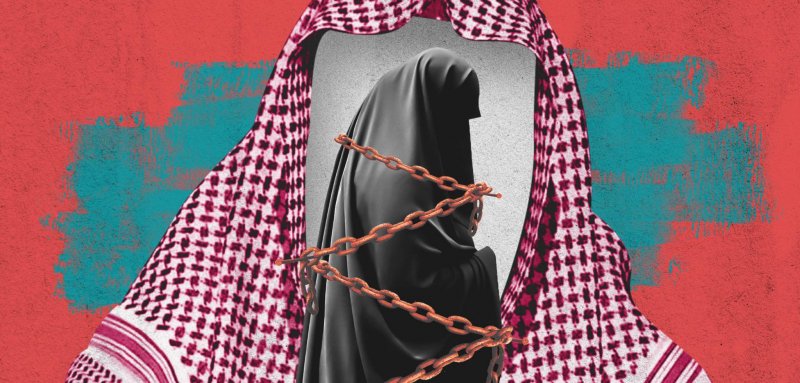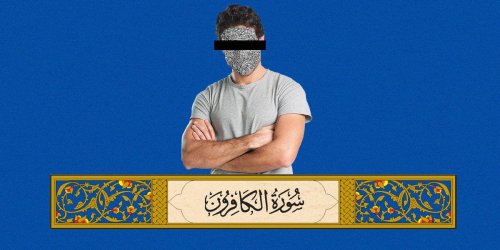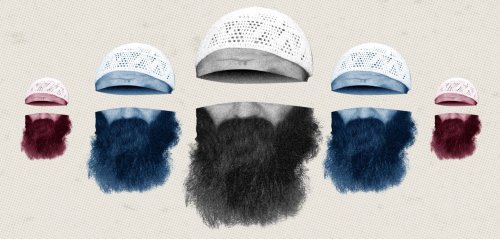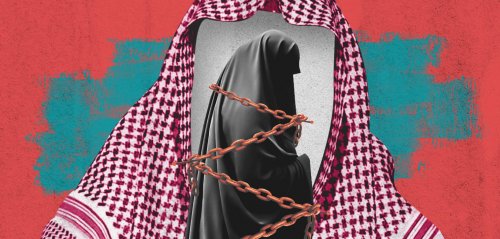Editor’s note: Ayed al-Qarni is a well-known Salafist Saudi cleric with a large following among ordinary Muslims.
“Uncle,” whose name I do not know, lives three blocks from the building where I rent an apartment. I make no effort to get to know “Uncle,” who works in a small grocery store, where I sometimes buy water and he occasionally gives me a sweet.
Our conversations don’t go beyond “good morning” or “good evening", those words that are usually spoken to strangers everywhere. But a few days ago, he stopped me without warning. The following dialogue took place between us:
Him: "Do you know the girl who lives on the fourth floor?
Me: “Why?”
Him: “Is she crazy?"
Me: "Why? What happened?"
Him: "She wears short dresses and walks down the street while we are all fasting. If you know her, tell that it's not acceptable.”
Me: ”No I don’t know her, and I can’t interfere in the way she dresses”
The whole situation stunned me. I sped off home, chastising myself for not responding more forcefully because the situation reminded me of something that happened to me when I was ten years old.
I was going to buy something with my cousin, when a man with a large beard in a white robe stopped us and said to my cousin that I had an attractive body and I had to stop wearing dresses. I begged my cousin not to tell my parents what had happened, but he did, and then I was forced to leave all my dresses in my closet.
Though I was ten years old in the first situation and 25 in the second, there were always men we do not know who impose their opinion and authority on our bodies.
Fatwas will not return my old dresses to me
A few days ago, Sheikh Ayed al-Qarni was a guest on the program "al-Liwan" on the Rotana Gulf TV channel. He expressed his regret over the hardline nature of his past fatwas, saying that he supports the moderate Islam espoused by Saudi Crown Prince Mohammed bin Salman. I couldn’t ignore this statement like any other. Someone apologizing for taking my life away from me for political purposes.
Sheikh Ayed al-Qarni was one of the founders of “al-Sahwa” (Awakening) group, which made its debut in the 1970s. This fundamentalist Islamist group incited a great deal of hatred which continues to affect many till this day. it is worth mentioning that the expansion of the group's ideas did not stop at the borders of Saudi Arabia – it spread to the entire Gulf and beyond to Egypt for many reasons, including the surge in the number of Egyptian workers in the Gulf and the back and forth movement of people.
The core principles of the Sahwa group were based on adopting a religious appearance and appointing themselves guardians of society, which they divided into pious and non-pious, and they deemed many things “haram” or forbidden.
The Sahwa was the biggest reason that many began to wear a headscarf in the 1970s. My grandmother often talks about the period when she wore the hijab, when she was pregnant with my father, who was born in the 1970s. Since so many women had begun to wear it, she followed suit.
It didn’t stop with the hijab but extended to the prohibition of trousers and other things including music and instruments and the trend of Islamic weddings that began in the 1990s and early 2000s. In these weddings, there was segregation between the sexes and drums were the only instruments permitted.
Friday sermons became increasingly about threatening and intimidating women because of their clothes, and promoting hijab as a way to avoid perdition.
A few days ago, an Islamic preacher also stated that music and musical instruments were no longer taboo, as if these preachers believe that life will return as it once was, just because a new fatwa is issued that permits what was once forbidden.
How did it affect me and the people around me?
When we were in university, my friend wept because her parents had locked her up and beat her when she decided to wear trousers. At school, one classmate hit me because I listened to music. At home, I quarreled with my parents just so I can wear what I wanted at first, a battle that got worse when I had to fight to take off the headscarf.
The man who I do not know decided to forbid me from wearing dresses because the waves of prohibition arrived when I was young. It made him believe that the body of a ten-year-old girl was shameful and dangerous because of the fatwas of the sheikhs. My neighbor also decided that his authority could control the way my neighbor dressed and this is all because of fundamentalism, zealotry and forbidding all that concerns women.
I could not tolerate that fatwa. All the rights that I enjoy now have been fought for, because everyone around me believes in these fatwas. Is it permissible for a person like Qarni or anyone else to withdraw what they said and apologize and thus undo what they have done will his new fatwa?
This fatwa, whose primary purpose is for him to gain the support of Muhammad ibn Salman, suddenly makes permissible what was forbidden in our house? Will my friend be able to wear what she wants without being locked up? Will she forgive her family who thought what they did was out of fear for her and fear of Allah?
This fatwa will not change anything except that it will cause a hubbub on social media Perhaps some people will pause and comment that fatwas can change for power and money, but they will not return to me my old dresses and will not make my neighbor apologize for bothering my other neighbor about her clothes.
Raseef22 is a not for profit entity. Our focus is on quality journalism. Every contribution to the NasRaseef membership goes directly towards journalism production. We stand independent, not accepting corporate sponsorships, sponsored content or political funding.
Support our mission to keep Raseef22 available to all readers by clicking here!








Join the Conversation
جيسيكا ملو فالنتاين -
1 day agoجميل جدا أن تقدر كل المشاعر لأنها جميعا مهمة. شكرا على هذا المقال المشبع بالعواطف. احببت جدا خط...
Tayma Shrit -
3 days agoمدينتي التي فارقتها منذ أكثر من 10 سنين، مختلفة وغريبة جداً عمّا كانت سابقاً، للأسف.
Anonymous user -
3 days agoفوزي رياض الشاذلي: هل هناك موقع إلكتروني أو صحيفة أو مجلة في الدول العربية لا تتطرق فيها يوميا...
Anonymous user -
3 days agoاهم نتيجة للرد الايراني الذي أعلنه قبل ساعات قبل حدوثه ، والذي كان لاينوي فيه احداث أضرار...
Samah Al Jundi-Pfaff -
4 days agoأرسل لك بعضا من الألفة من مدينة ألمانية صغيرة... تابعي الكتابة ونشر الألفة
Samah Al Jundi-Pfaff -
4 days agoاللاذقية وأسرارها وقصصها .... هل من مزيد؟ بالانتظار